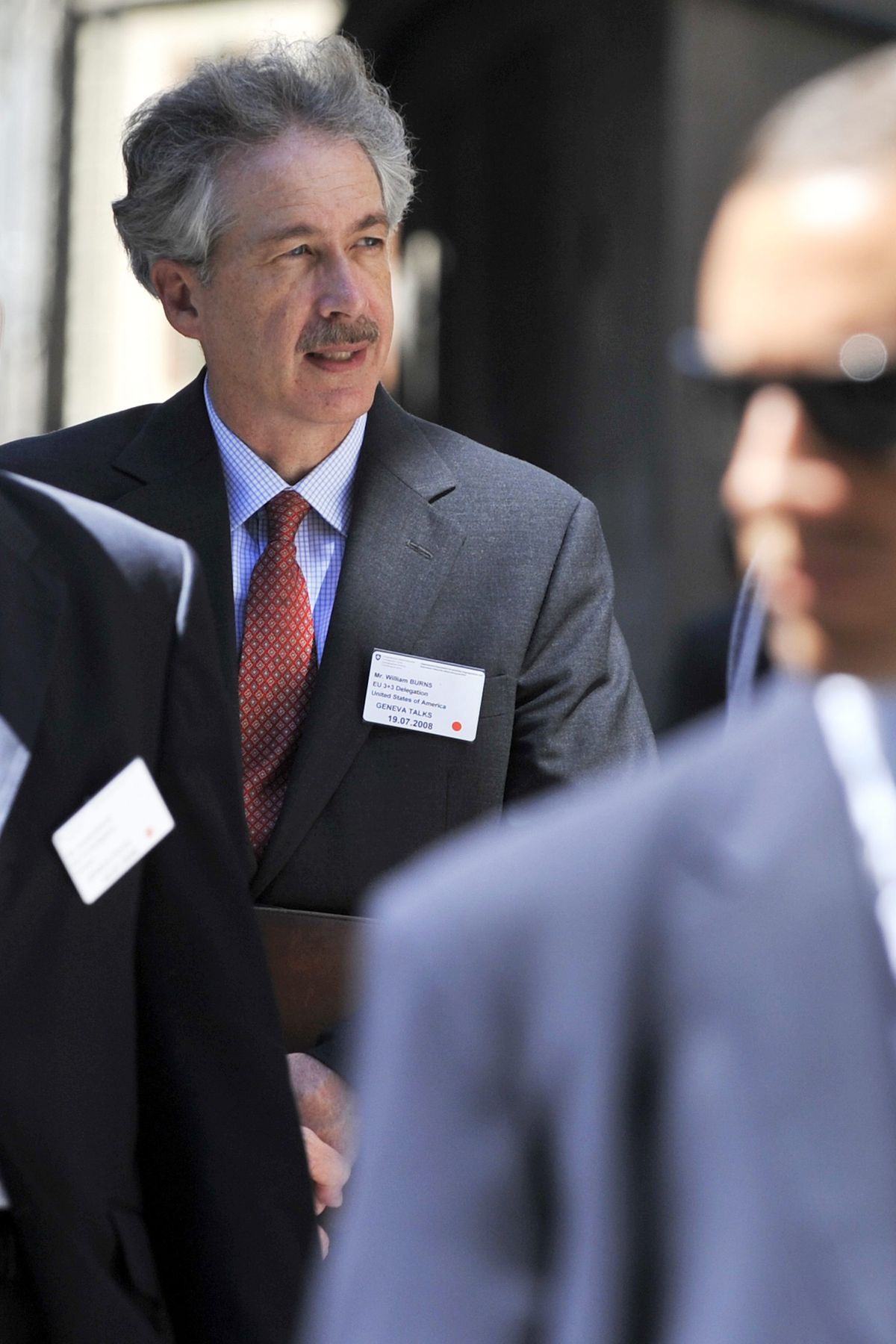Iran’s intentions unclear after abbreviated talks
Islamic republic given two weeks to answer

WASHINGTON – U.S. and Iranian envoys had their highest-level diplomatic contact in 29 years Saturday, but the seven-nation gathering in Geneva on Iran’s nuclear program quickly was brought to a halt by Iran’s refusal to say whether it will suspend uranium enrichment.
In a break with long-standing policy, U.S. Undersecretary of State William J. Burns joined Iranian nuclear negotiator Saeed Jalili, European Union foreign policy chief Javier Solana and other diplomats in hopes of coaxing Iran finally to commit to a deal aimed at negotiating an end to the country’s nuclear ambitions.
Instead, the diplomats were left wondering whether the Islamic republic intends to join negotiations, or whether it is simply playing for time as the Bush administration winds to an end.
Solana, clearly frustrated, said in a news conference in Geneva: “We have not got a clear answer. … We didn’t get an answer ‘yes’ or ‘no.’ ”
As a result, Iran was given another deadline of two weeks from now to provide a final answer to the group, which includes the United States, Russia, China, Britain, France and Germany.
A senior U.S. official in Washington, D.C., said the United States would press to add additional economic and political sanctions on Iran if the regime continued to stonewall.
“We’ll have to see,” said the official, who declined to be identified because of the sensitivity of the diplomacy. “If that is the case, more things will be added to the disincentive side of the ledger in short order.”
State Department spokesman Sean McCormack, also in Washington, offered a warning to the Iranian government: “We hope the Iranian people understand that their leaders need to make a choice between cooperation, which would bring benefits to all, and confrontation, which can only led to further isolation.”
The meeting’s result was a setback for the Bush administration, which in hopes of winning assent set aside its long-declared policy of avoiding almost any contact with the Iranians until they agree to suspend uranium enrichment. U.S. officials fear the enrichment effort eventually will give the regime the know-how it needs to build a nuclear bomb, although the Iranians insist it is for peaceful purposes.
The meeting was the most important diplomatic encounter since the 1979 revolution between the United States and Iran, which President Bush six years ago labeled part of the “axis of evil.”
U.S. and Iranian officials have met in recent years on Iraq’s security, and senior diplomats have exchanged greetings from time to time in various regional meetings. But U.S. officials have maintained that isolating Iran offered them an important point of leverage that they would be unwise to give up.